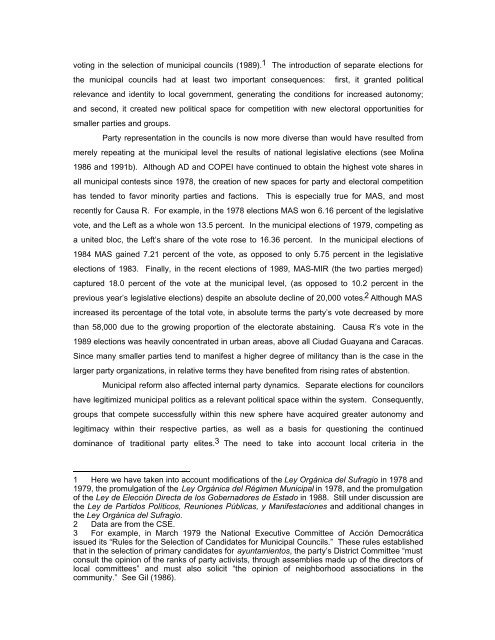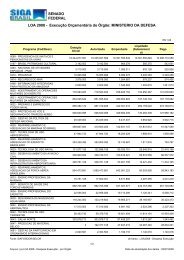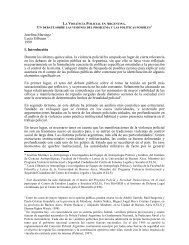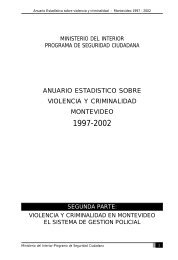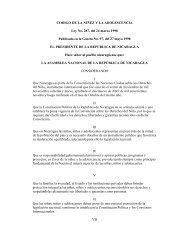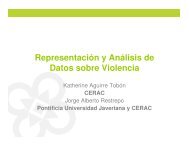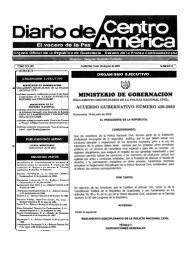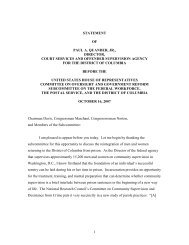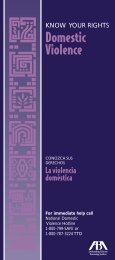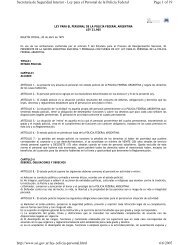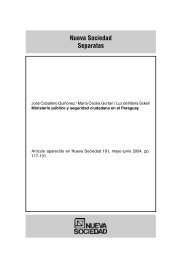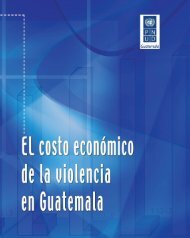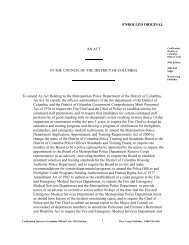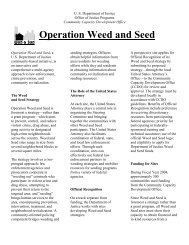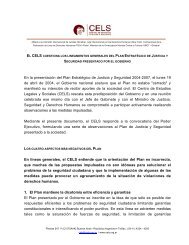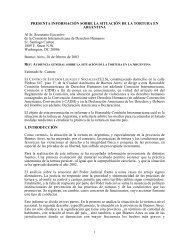Venezuela: The Life and Times of the Party System - Political ...
Venezuela: The Life and Times of the Party System - Political ...
Venezuela: The Life and Times of the Party System - Political ...
Create successful ePaper yourself
Turn your PDF publications into a flip-book with our unique Google optimized e-Paper software.
voting in <strong>the</strong> selection <strong>of</strong> municipal councils (1989). 1 <strong>The</strong> introduction <strong>of</strong> separate elections for<br />
<strong>the</strong> municipal councils had at least two important consequences: first, it granted political<br />
relevance <strong>and</strong> identity to local government, generating <strong>the</strong> conditions for increased autonomy;<br />
<strong>and</strong> second, it created new political space for competition with new electoral opportunities for<br />
smaller parties <strong>and</strong> groups.<br />
<strong>Party</strong> representation in <strong>the</strong> councils is now more diverse than would have resulted from<br />
merely repeating at <strong>the</strong> municipal level <strong>the</strong> results <strong>of</strong> national legislative elections (see Molina<br />
1986 <strong>and</strong> 1991b). Although AD <strong>and</strong> COPEI have continued to obtain <strong>the</strong> highest vote shares in<br />
all municipal contests since 1978, <strong>the</strong> creation <strong>of</strong> new spaces for party <strong>and</strong> electoral competition<br />
has tended to favor minority parties <strong>and</strong> factions. This is especially true for MAS, <strong>and</strong> most<br />
recently for Causa R. For example, in <strong>the</strong> 1978 elections MAS won 6.16 percent <strong>of</strong> <strong>the</strong> legislative<br />
vote, <strong>and</strong> <strong>the</strong> Left as a whole won 13.5 percent. In <strong>the</strong> municipal elections <strong>of</strong> 1979, competing as<br />
a united bloc, <strong>the</strong> Left’s share <strong>of</strong> <strong>the</strong> vote rose to 16.36 percent. In <strong>the</strong> municipal elections <strong>of</strong><br />
1984 MAS gained 7.21 percent <strong>of</strong> <strong>the</strong> vote, as opposed to only 5.75 percent in <strong>the</strong> legislative<br />
elections <strong>of</strong> 1983. Finally, in <strong>the</strong> recent elections <strong>of</strong> 1989, MAS-MIR (<strong>the</strong> two parties merged)<br />
captured 18.0 percent <strong>of</strong> <strong>the</strong> vote at <strong>the</strong> municipal level, (as opposed to 10.2 percent in <strong>the</strong><br />
previous year’s legislative elections) despite an absolute decline <strong>of</strong> 20,000 votes. 2 Although MAS<br />
increased its percentage <strong>of</strong> <strong>the</strong> total vote, in absolute terms <strong>the</strong> party’s vote decreased by more<br />
than 58,000 due to <strong>the</strong> growing proportion <strong>of</strong> <strong>the</strong> electorate abstaining. Causa R’s vote in <strong>the</strong><br />
1989 elections was heavily concentrated in urban areas, above all Ciudad Guayana <strong>and</strong> Caracas.<br />
Since many smaller parties tend to manifest a higher degree <strong>of</strong> militancy than is <strong>the</strong> case in <strong>the</strong><br />
larger party organizations, in relative terms <strong>the</strong>y have benefited from rising rates <strong>of</strong> abstention.<br />
Municipal reform also affected internal party dynamics. Separate elections for councilors<br />
have legitimized municipal politics as a relevant political space within <strong>the</strong> system. Consequently,<br />
groups that compete successfully within this new sphere have acquired greater autonomy <strong>and</strong><br />
legitimacy within <strong>the</strong>ir respective parties, as well as a basis for questioning <strong>the</strong> continued<br />
dominance <strong>of</strong> traditional party elites. 3 <strong>The</strong> need to take into account local criteria in <strong>the</strong><br />
1 Here we have taken into account modifications <strong>of</strong> <strong>the</strong> Ley Orgánica del Sufragio in 1978 <strong>and</strong><br />
1979, <strong>the</strong> promulgation <strong>of</strong> <strong>the</strong> Ley Orgánica del Régimen Municipal in 1978, <strong>and</strong> <strong>the</strong> promulgation<br />
<strong>of</strong> <strong>the</strong> Ley de Elección Directa de los Gobernadores de Estado in 1988. Still under discussion are<br />
<strong>the</strong> Ley de Partidos Políticos, Reuniones Públicas, y Manifestaciones <strong>and</strong> additional changes in<br />
<strong>the</strong> Ley Orgánica del Sufragio.<br />
2 Data are from <strong>the</strong> CSE.<br />
3 For example, in March 1979 <strong>the</strong> National Executive Committee <strong>of</strong> Acción Democrática<br />
issued its “Rules for <strong>the</strong> Selection <strong>of</strong> C<strong>and</strong>idates for Municipal Councils.” <strong>The</strong>se rules established<br />
that in <strong>the</strong> selection <strong>of</strong> primary c<strong>and</strong>idates for ayuntamientos, <strong>the</strong> party’s District Committee “must<br />
consult <strong>the</strong> opinion <strong>of</strong> <strong>the</strong> ranks <strong>of</strong> party activists, through assemblies made up <strong>of</strong> <strong>the</strong> directors <strong>of</strong><br />
local committees” <strong>and</strong> must also solicit “<strong>the</strong> opinion <strong>of</strong> neighborhood associations in <strong>the</strong><br />
community.” See Gil (1986).


